🏃 Physical Activity Trajectories and Mortality: A Meta-Analysis
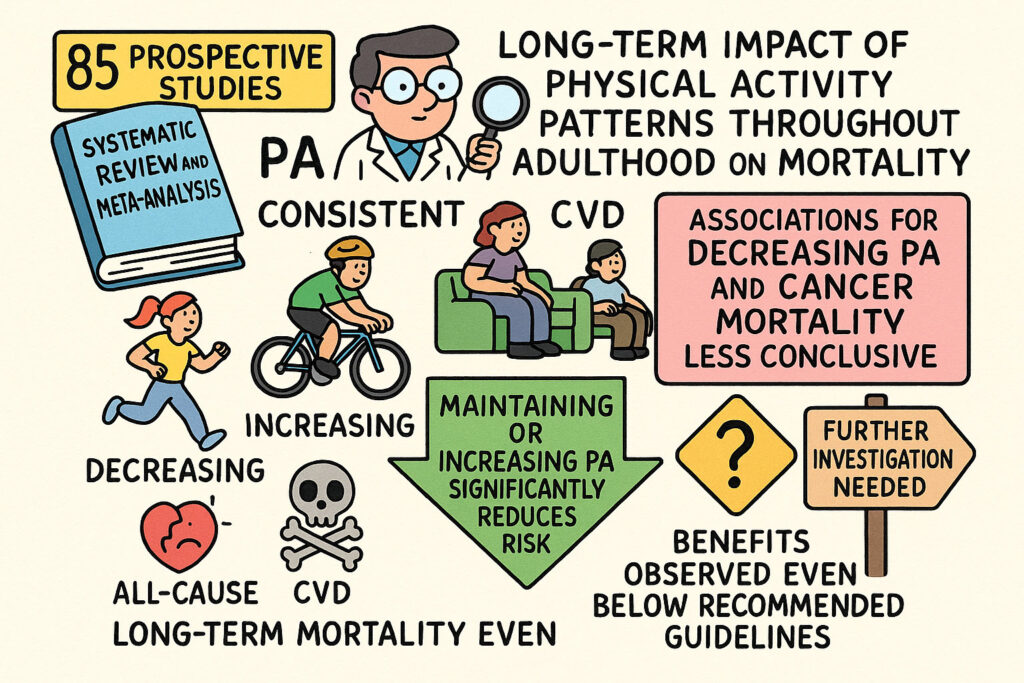
A systematic review and meta-analysis of 85 prospective studies, examining the long-term impact of physical activity (PA) patterns throughout adulthood on mortality. The authors aimed to understand how consistent, increasing, or decreasing PA levels are associated with all-cause, cardiovascular disease (CVD), and cancer mortality. The findings indicate that maintaining or increasing PA significantly reduces the risk of all-cause and CVD mortality, with benefits […]
Hormone Therapy Enhances Tirzepatide Weight Loss in Menopause
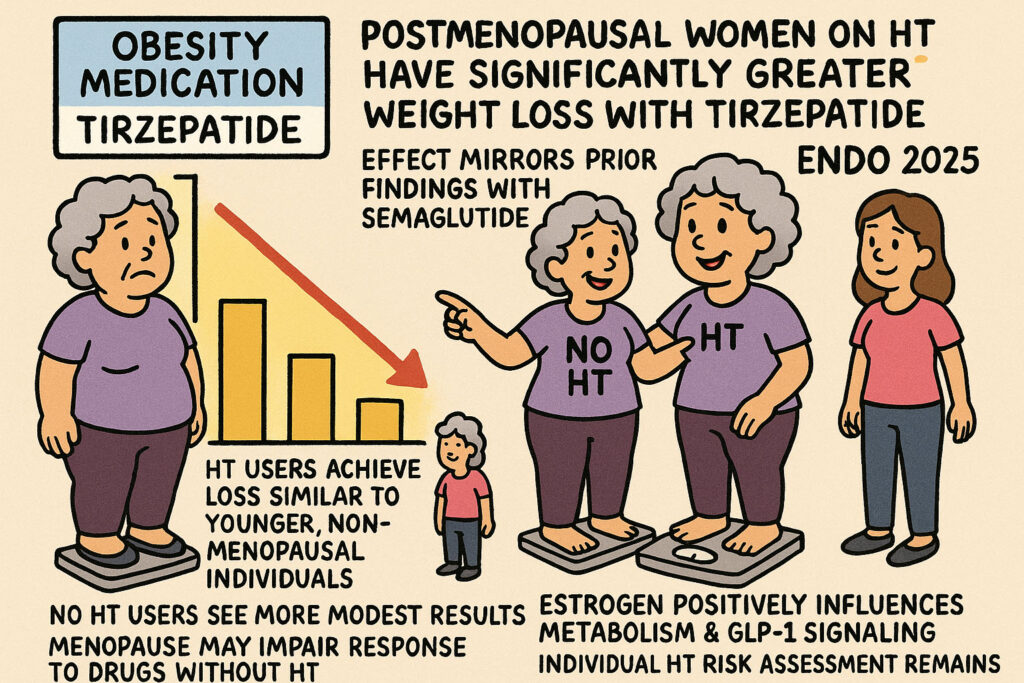
The source discusses research indicating that postmenopausal women on hormone therapy (HT) experience significantly greater weight loss when treated with tirzepatide, an obesity medication, compared to those not on HT. This effect mirrors prior findings with semaglutide, another weight-loss drug, suggesting a synergistic interaction where HT enhances the efficacy of these medications in this demographic. […]
⚖️ The History of Obesity

The provided text offers a comprehensive overview of how obesity has been understood and depicted across different historical periods, from ancient civilizations to the present day. It traces the evolution of obesity from being a symbol of wealth or a moral failing to its current recognition as a complex medical condition influenced by genetics, environment, and socioeconomic factors. The document highlights key shifts in medical understanding, […]
👨⚕️ AI-Driven Virtual Human for GP Obesity Training
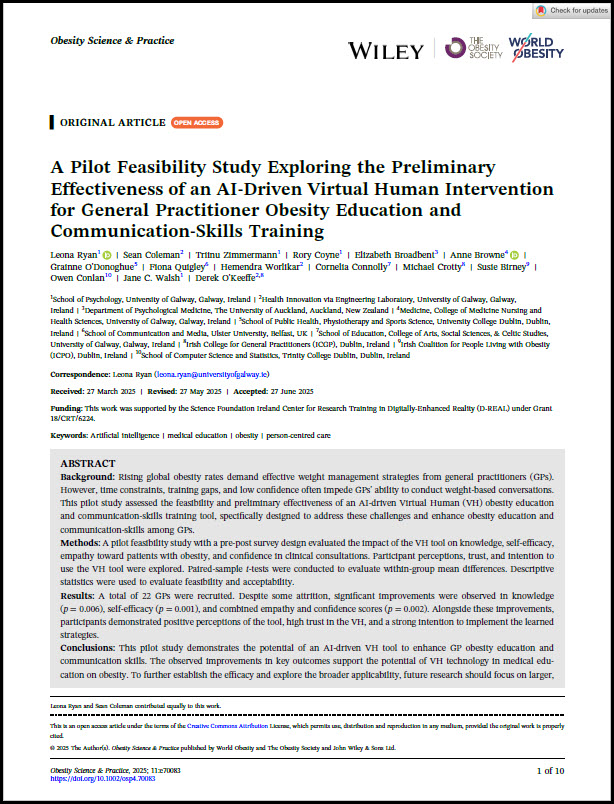
This document presents a pilot feasibility study published in “Obesity Science & Practice” that investigates the effectiveness of an AI-driven Virtual Human (VH) intervention designed to enhance General Practitioner (GP) obesity education and communication skills. The research highlights the growing global obesity rates and the need for GPs to possess effective weight management strategies and communication abilities. The study aimed to address […]
👵 Ozempic Face: GLP-1 and Aesthetic Surgery
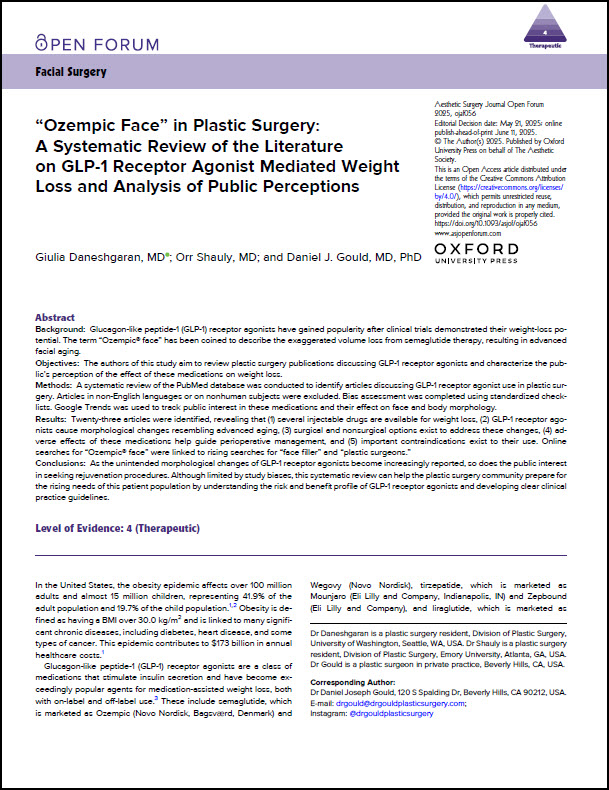
This scholarly article from Aesthetic Surgery Journal Open Forum discusses the phenomenon of “Ozempic Face,” a term used to describe the accelerated facial aging and volume loss experienced by some patients undergoing rapid weight loss from GLP-1 receptor agonists like Ozempic. The authors, plastic surgery residents and a practicing plastic surgeon, present a systematic review of existing literature on these medications within plastic […]
✨ GLP-1s and Post-Weight Loss Plastic Surgery Trends
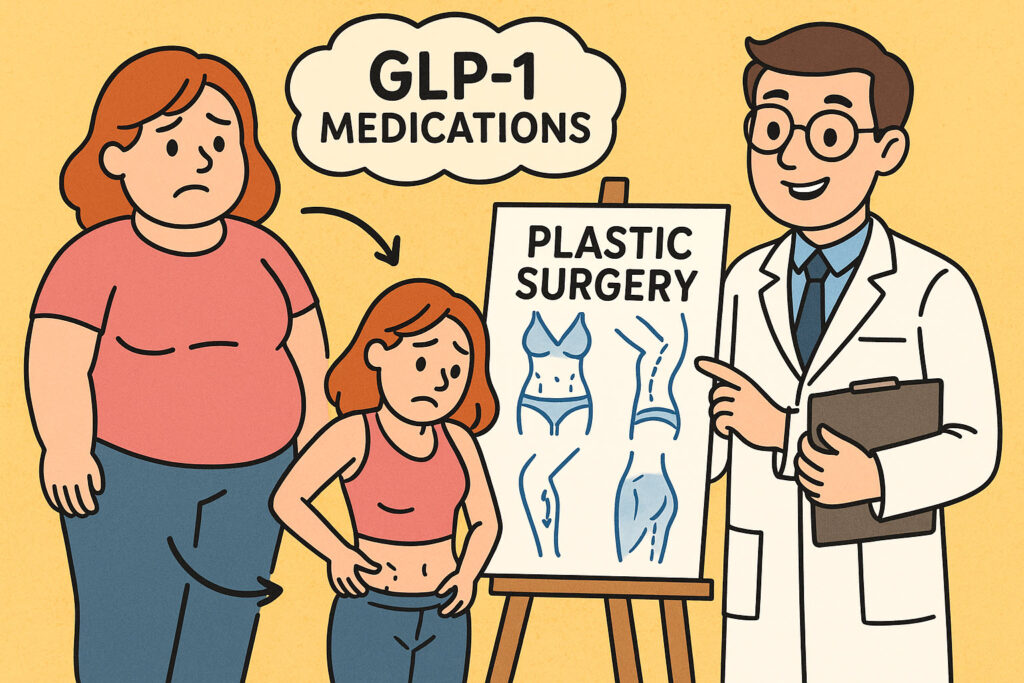
There is growing evidence—especially in the plastic surgery community—that the recent surge in GLP‑1 medications (like Ozempic, Wegovy, Mounjaro) for weight loss is fueling a wave of “trim & sculpt” surgeries to address excess skin and volume loss. 📈 Trend & Clinical ReviewsThe American Society of Plastic Surgeons and multiple industry blogs report an increase […]
💉 Counterfeit Ozempic: FDA Warns of Unsafe Drug Supply (4/14/2025)

The provided text, originating from the Food and Drug Administration (FDA), serves as a crucial public health warning regarding counterfeit Ozempic (semaglutide) injections found within the U.S. drug supply chain. It details multiple instances where fake versions of the medication were identified and seized, highlighting specific lot and serial numbers to help consumers, pharmacies, and healthcare professionals identify these fraudulent products. The […]
Obesity Treatment Outcomes with Semaglutide or Tirzepatide
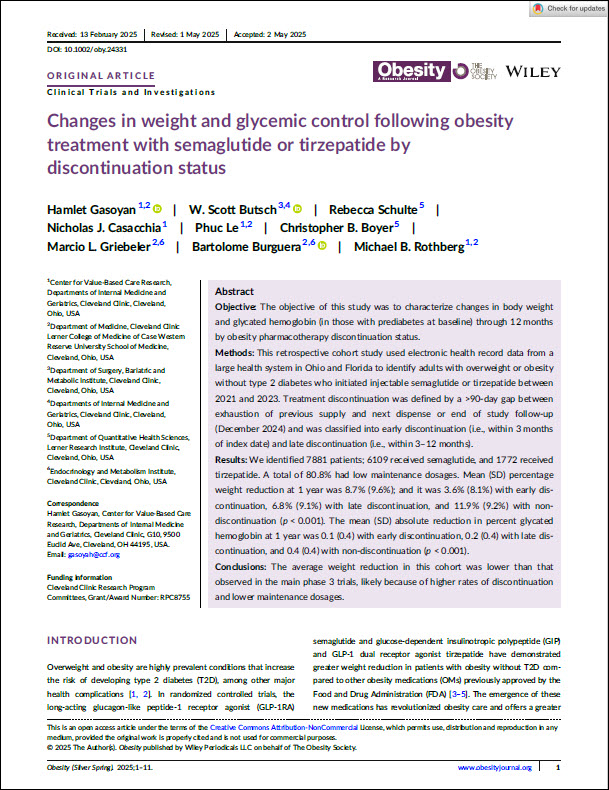
This original research article examines the real-world effectiveness of semaglutide and tirzepatide for obesity treatment, focusing on how medication discontinuation impacts weight loss and glycemic control. The retrospective cohort study analyzed electronic health records from a large patient population in Ohio and Florida. It reveals that discontinuation of these pharmacotherapies is common and significantly reduces the average weight reduction and improvement in glycated hemoglobin levels compared to continuous treatment. The findings suggest that maintaining […]
Unpacking the GLP-1 Gold Rush
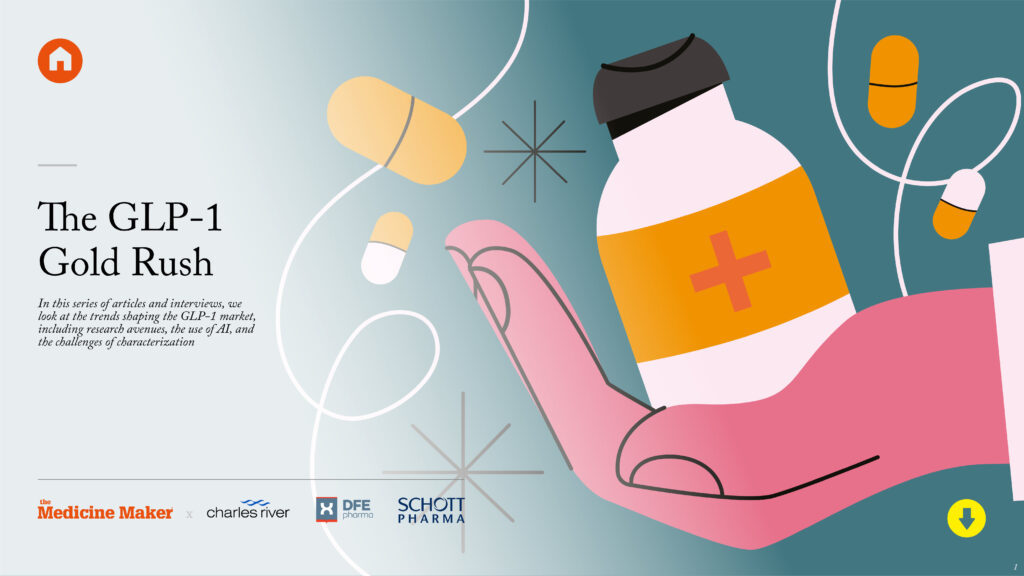
We ask experts for their views on the GLP-1 market in this exclusive eBook. GLP-1 receptor agonists have rapidly evolved from niche diabetes drugs to headline-grabbing agents of a global weight-loss revolution. But the science, strategy, and scale behind these therapies are far more complex than the public narrative suggests. This exclusive eBook, The GLP-1 Gold […]
Your Weight Matters Region

Your Weight Matters Regional is traveling the country, bringing expert-led education and practical guidance to cities near you. These FREE half-day events are designed to meet you wherever you are in your journey—whether you’re just starting to explore your options or want to better understand your health.Each event features a physician, mental health professional and […]
